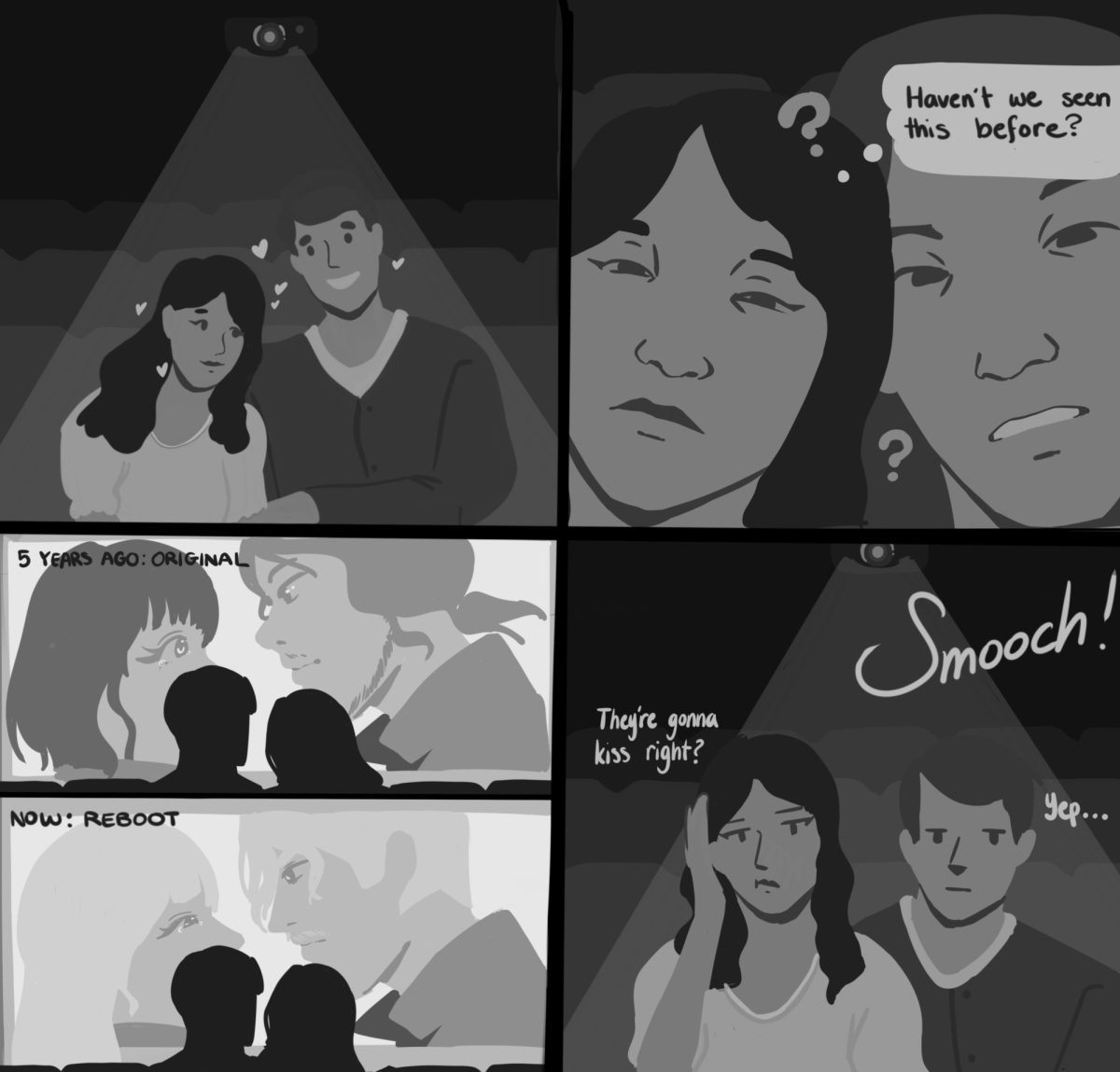Written by: Ben Atlas and Rachel Lew
PRO:
Every year, as student delegates return from Camp Everytown, informal debates ensue over the camp’s merits. Opponents of the program generally claim that the insulated atmosphere creates a “cult” that excludes those who do not have a chance to attend. Proponents of the program generally cite increases in empathy and understanding of major social problems that many students undergo. While the camp is far from perfect, it ultimately serves to promote inclusivity and provides a rare opportunity for self-improvement.
At Camp Everytown, delegates are able to confront problems that often get hidden beneath a smiling face and socially acceptable behavior. Teenagers sometimes have nowhere to turn when it comes to any of various serious challenges, including domestic violence, substance abuse, academic stress, racial discrimination and a host of other familial, scholastic and social problems. Everytown’s atmosphere of relaxation and emotional openness creates a safe outlet for issues that otherwise can go unaddressed.
Apart from allowing students the chance to discuss their own problems, delegates hear about others’ problems and become aware of the hardships that their peers undergo. Students who previously had little knowledge of the devastating effects of negative stereotypes are now confronted with a personal image of them. When one’s friend or peer describes an emotionally harmful experience, the awful effects of often unintentional cruelty resonate much more deeply. Thus, delegates are less likely to repeat the same behavior they now find so abhorrent.
Before attending Camp Everytown, it is easy to judge individuals based on their actions rather than the content of their character. Everytown provides an insight into the lives and troubles of a few dozen peers, an experience which makes students think twice before judging so harshly. As students realize that almost everyone has gone through some sort of emotionally-trying experience, they become more hesitant to cast judgment on a person’s character without knowing what they’ve been through.
The most common and strongest argument against the camp is that it creates an atmosphere of exclusive inclusivity: a cult of acceptance in which those admitted thrive but those not invited are left out, rejected by the cult members who claim moral superiority only because they were nominated to attend a one-weekend camp. To some extent, this sentiment is justified. Unfortunately, only a certain number of people can attend each year, so some students will inevitably get left out. It is also partially true that some attendees might act haughtily and sanctimonious. However, the camp preaches acceptance, and most delegates will honestly attempt to practice that acceptance. While it might be misinterpreted as arrogance, the fact remains that most attendees have undergone at least some personal growth.
The results of this mindset shift are both short-term and far-reaching. At the very minimum, the campers themselves will mature emotionally and ethically. The Everytown experience creates empathy and understanding of various social problems and helps to search for solutions. It also helps delegates to deal with their own personal struggles. A more optimistic outlook of the camp’s success is that Camp Everytown plants the seed of social justice in the mind of each delegate, and helps them check the morality of their own actions. Once one’s eyes are opened to the pernicious damages callous words and careless actions can inflict, he subconsciously watches himself more carefully.
Furthermore, a respected alum of Camp Everytown can influence those around him. As a former delegate’s friends see their peer begin to change previously insensitive behavior, they may seek to reform themselves in response. Because no one enjoys feeling morally inferior, a sort of moral competitiveness is fostered as delegates lead by example—providing benefits for the entire community.
Ultimately, Camp Everytown is not a perfect institution. The fact that only 70 or so students are sent each session means that a large percentage of the school will never attend. However, the camp should still be recognized as a positive influence on those who do. Everytown provides personal growth, tempers judgment and helps change the school into a more accepting community.
CON:
There are two prevailing attitudes that surface when the subject of Camp Everytown is brought up at Gunn: sarcastic dismissal and unbridled enthusiasm. Naturally, the wide division of student opinion brings into question the success of the program. Held in Camp Harmon, Boulder Creek, Everytown claims online to promote racial understanding, interreligious respect, citizenship values, and personal empowerment, among a host of vague ideals. However, despite rave reviews by teachers and students, Camp Everytown has failed to significantly impact the school’s society.
The primary issue is that the camp claims to work toward eliminating societal evils, but does not teach students how to do so. Instead, Everytown illustrates the amount of discrimination and abuse that exists in the world, to an unpleasant, emotion-ridden extent. And by telling students to be emotionally open, namely, in daily small-group discussions, Everytown can make students feel uncomfortable or left out. Moreover, students are not told what to expect before attending because they are told that any knowledge of camp activities ruins the camp experience.
In contrast to its policy of acceptance, Everytown inadvertently creates an environment in which less emotional individuals are discriminated against. For example, one activity involves the camp leader preaching to the students about letting their emotions out because a lack of tears is detrimental to mental stability. Those who are normally emotionally reserved are then unfairly labeled as cold-hearted.
Naturally, some may argue that the awareness promoted by Camp Everytown is necessary to motivate students to take a stand. But only so much awareness is necessary for students to proactively prevent discrimination. “Eye-opening” activities, such as the famous Over-the-Line activity in which students step forward or back if they have experienced a certain traumatic experience, need not last the entire weekend of camp. Furthermore, students should not be pressured to divulge private information for the benefit of awareness of others. The obvious fact that sharing is voluntary is outweighed by the presence of peer pressure. Telling students that it is not required for them to share personal experiences if the students feel uncomfortable would not, as might be expected, lower participation within the camp, provided that students come prepared with a clear idea of camp activities.
Even if students are motivated by Everytown, they will be ill-equipped to utilize that motivation. The one activity designed to show students how to deal with issues outside the friendly, loving bubble of camp is brief and unguided; students are simply given twenty minutes to list several ways they will pledge to stop bullying. Moreover, as camp alumni have testified, motivation triggered by the camp’s countless in-depth discussions eventually fades away.
It is unsurprising that some alumni find themselves at a loss upon returning to a normal school environment. Aside from encountering snide remarks accusing them of being cult members, alumni discover that they are not only more sensitive to the troubling issues of society, but even more at a loss for how to fix them. Those that come back from Everytown ready to take a stand are labeled as “brainwashed” by non-attendees, and the bitter attitude of these skeptical students can discourage former campers’ efforts at positive reform.
The root of this issue is not the students’ jealousy and resultant derision, but the idealistic way in which alumni are taught to present their newfound morality; camp leaders tell students that by exuding love, understanding and political correctness, people around them will be similarly inspired to reform society.
Camp Everytown’s intentions are admirable, but it does not accomplish what it claims to. To be truly inclusive, the camp should publicly acknowledge that not everyone is ready to express themselves, and should promote the acceptance of these campers as well. But most of all, camp staff should encourage more discussion on how to solve presented problems: Everytown needs to cut down on idealistic talk and emotional overload and focus more on real solutions.











